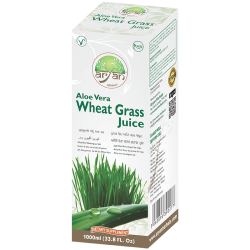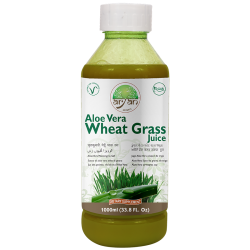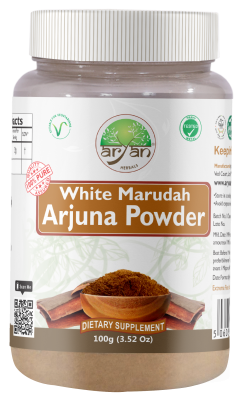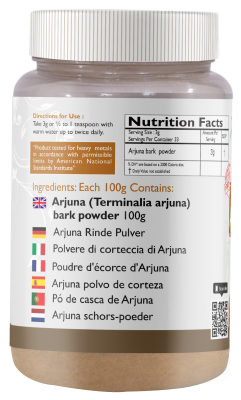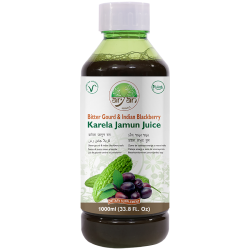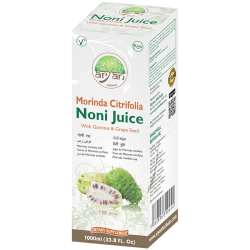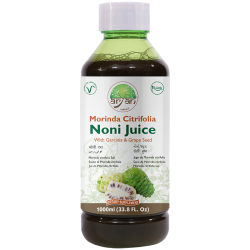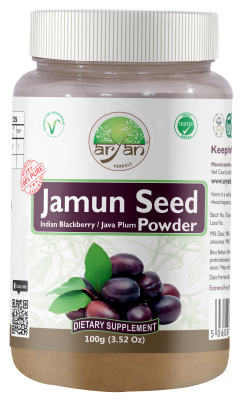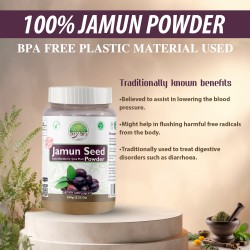Description
The word Aloe is derived from the Arabic word ‘Alloeh’, which means shiny and bitter. For thousands of years, people have recognized the healing and moisturizing properties of the Aloe Vera Plant. Traditionally, it’s believed to help maintain & promote digestion, a healthy immune system and a healthy skin. Additionally, Wheatgrass is known to be a natural detoxifier of liver and a blood protector. The enzymes and amino acids found in wheatgrass are widely believed to help protect us from carcinogens and act as an anti-pollutant, stimulating metabolism, regulating blood pressure and enriching the blood.
Traditionally known benefits of this herb:
- Believed to help increases Hemoglobin in blood.
- Believed to help maintain & promote digestion.
- Believed to help maintain a healthy immune system.
- Believed to help maintain a healthy weight and maintain a healthy skin.
- Believed to help detoxification of blood, resolves foul odors of breath and sweat.
- New
In many traditional cultures, Arjuna is regarded as an effective heart tonic. It is believed to strengthen the heart muscles, thereby helping treat cardiovascular ailments. In Ayurveda it is considered as the ‘Ram Baan’ for all the heart related problems. It is also believed to be effective against asthma, hypertension and kidney stones. Arjuna Bark is known to possess diuretic properties, which may help reduce the chance of clot formation, lower blood lipid which is known to help manage high blood proessure.
Traditionally known benefits:
– It is traditionally used as lymph tonic for the heart.
– Believed to help reduce the symptoms of giddiness, headache and insomnia.
– It may help to nullify the effect of stress on the heart.
Ingredients: Arjuna (Terminalia Arjuna) Bark powder – 100gm
- New
Description
Though it has a rigid surface and is bitter in taste, bitter melon is believed to have a host of medicinal properties including helping with balancing and regulating blood sugar level. Additionally, the juicy pulp of Jamun/ Jambo fruit contains resin, Gallic acid and tannin and the taste can vary from acidic to fairly sweet. The Jamun seed is known to contain a biochemical called ‘jambolin’ and glycoside, which is believed to check the conversion of starch into sugar. It is also a rich source of vitamins A & C. Popular name(s): Jambul, Jamun, Black Plum, Faux Pistachier, Indian Blackberry, Jambol, Doowet and Jambolan. “The fruit of the tree are very tasteful; one who regularly consumes the juice of the jambu tree, does not suffer from old age, disease and can even resist death…” Vayu puran, Chapter 46, Verse 28/29.
Botanical Name:
Momordica charantia, Syzygium cumini
Traditionally known benefits of this herb:
- Believed to help promote digestion.
- Believed to help healing skin related ailments.
- Believed to help maintain healthy digestion.
- Believed to help maintain body temperature.
- Believed to help maintain normal blood pressure.
- Believed to help maintain sugar level in blood which is already in normal range.
Dosage: 30 ml. twice a day before food.
- New
Description
Aryan Noni (Indian Mulberry) is a unique naturally occurring blend of Morinda Citrifolia & grape seed. It is widely believed to be a rich source of vitamin A, vitamin C, several B complex vitamins, calcium, sulpher, potassium, phosphorous and some essential amino acids like phenylalanine and tyrosine. It’s believed to encourage development of a healthy immune system and help achieve overall wellbeing. Popular name(s): Indian Mulberry, Great Morinda, Beach Mulberry, Cheese Fruit, Noni.
Botanical Name: Morinda citrifolia
Traditionally known benefits of this herb:
- Believed to assist overall wellbeing
- Believed to help encourage a balanced immune system
- No artificial sweeteners, flavors or colours
- Suitable for vegetarians and vegans
Dosage: 30 ml. twice a day before food.
- New
The juicy pulp of Jamun/ Jambo fruit contains resin, gallic acid and tannin and the taste can vary from acidic to fairly sweet. The Jamun seed is known to contain a bio-chemical called ‘jambolin’ and glycoside, which is believed to check the conversion of starch into sugar. It is also a rich source of vitamins A & C. Popular name(s): Jambul, Jamun, Black Plum, Faux Pistachier, Indian Blackberry, Jambol, Doowet and Jambolan.
All parts of this tree, leaves, bark, fruit and seeds have medicinal properties and are being used in Ayurvedic medicine for treatment of various ailments.
“The fruit of the tree are very tasteful; One who regularly consumes the juice of the jambu tree, does not suffer from old age, disease and can even resist death…”‐ Vayu puran, Chapter 46, Verse 28/29.
Botanical Name: Syzygium cumini
Traditionally known benefits of this herb:
Believed to help with skin related ailments.
Believed to help maintain body temperature.
Believed to help maintain healthy digestion.
Believed to help maintain blood sugar level, which is already in normal range.
- New



